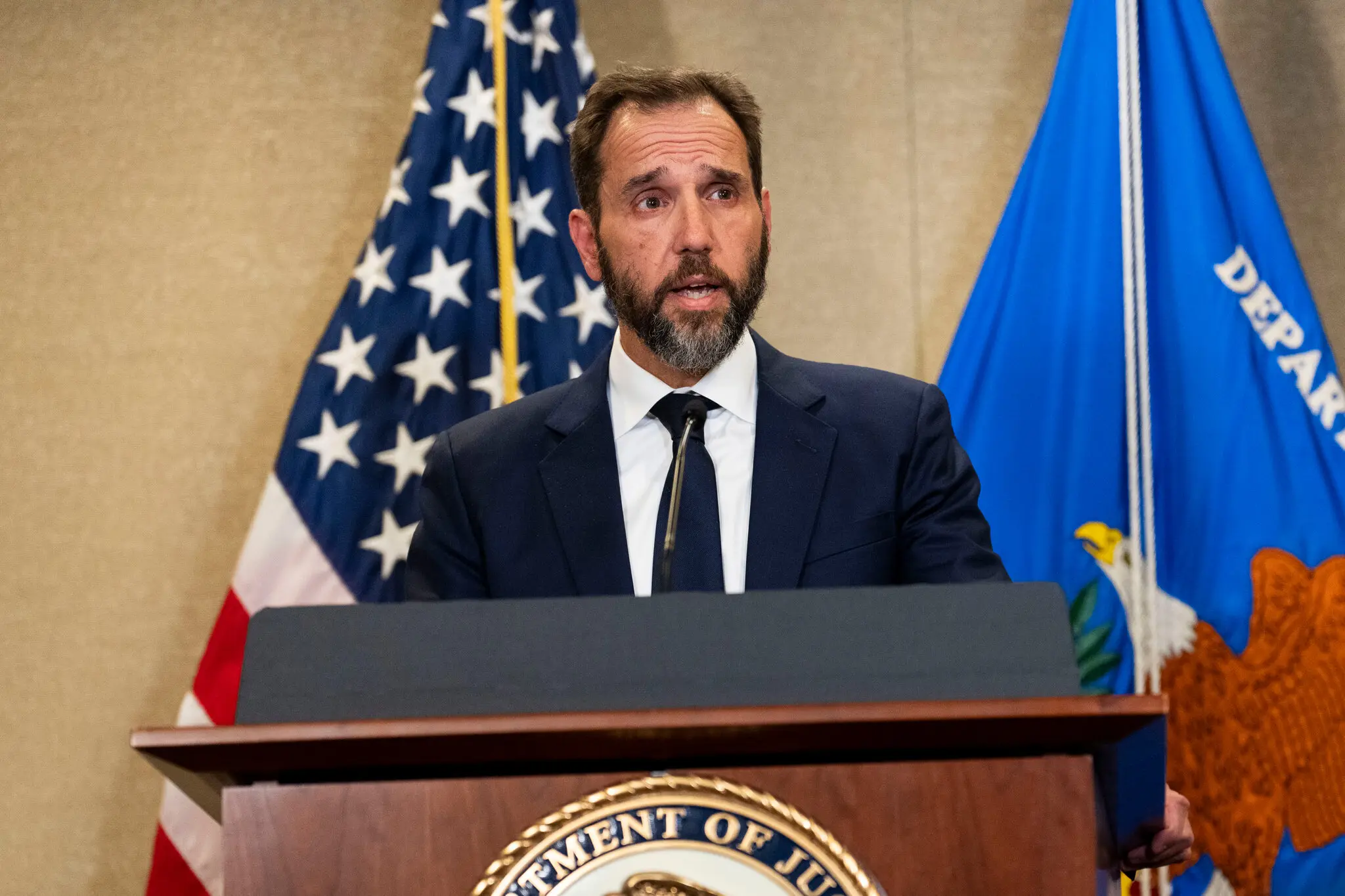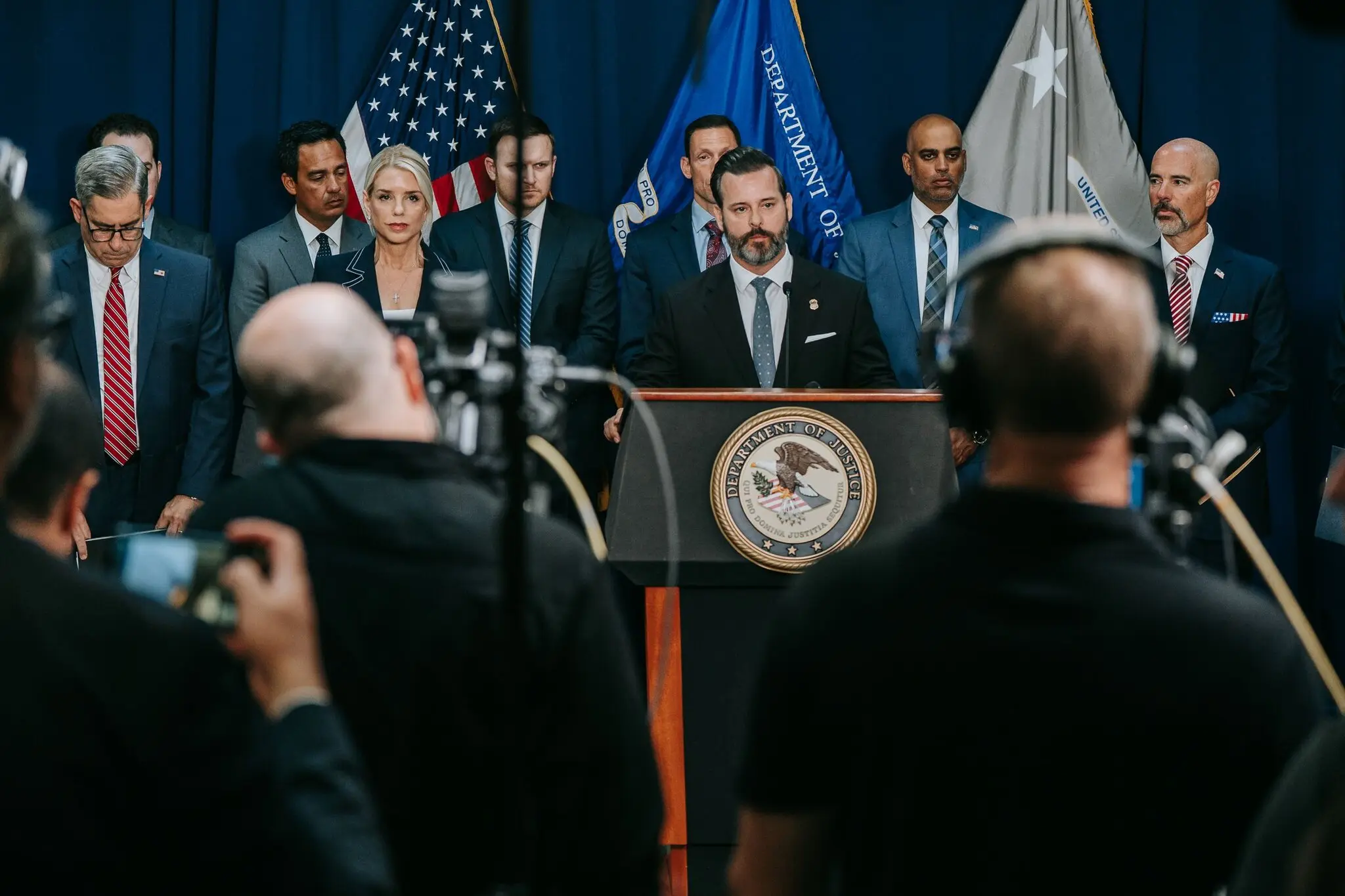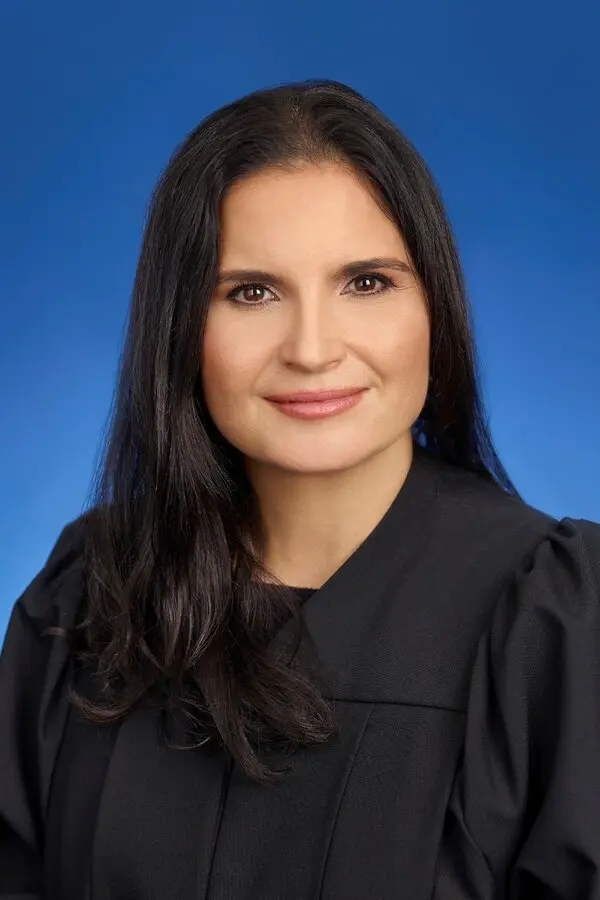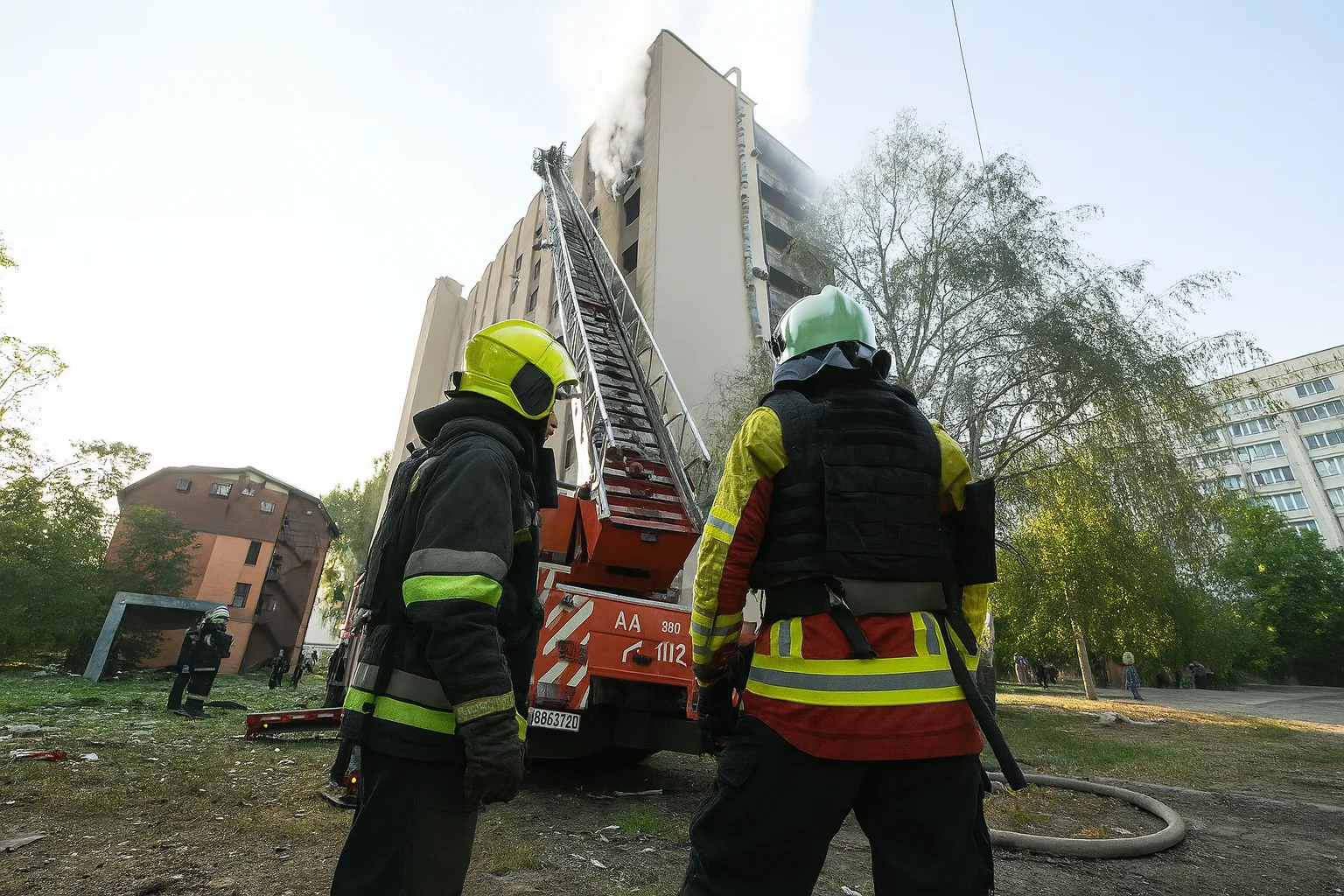With Trump’s Investigators Under Fire, a Polarizing Figure May Step Into a New Role
23.11.2025
A New Grand Jury, and a Familiar Judge
The U.S. attorney in Miami, who is leading a wide-ranging inquiry into former officials who investigated Donald Trump, has secured an unusual approval to seat an additional grand jury at the federal courthouse in Fort Pierce, Fla. Holding the proceedings there guarantees that the supervising judge will be Aileen M. Cannon.
That decision has prompted a pointed question with major political and legal implications: Could Judge Cannon once again become central to a Trump-related case—this time not about alleged wrongdoing by the former president, but about whether the Russia inquiry and later prosecutions after he left office in 2021 were part of a broader conspiracy against him?
Judge Cannon’s History in Trump Cases
Judge Cannon, nominated by Mr. Trump in the last year of his first term, presided over the criminal case involving his handling of classified documents after leaving office. Following the F.B.I.’s 2022 search of Mar-a-Lago, she briefly halted the investigation before an appeals court reversed her intervention. Then, in July 2024, she dismissed the documents indictment on procedural grounds, defying existing precedent.
The Miami U.S. attorney, Jason A. Reding Quiñones, a staunch Trump ally, has already been using a Miami grand jury to subpoena former officials connected to the intelligence assessment that found Russia sought to help Mr. Trump win the 2016 election. He has not publicly explained why he sought a second grand jury 130 miles away in Fort Pierce, under Judge Cannon’s roof.

A Strategy to Put Cannon in Charge?
Mike Davis, a conservative legal activist close to Mr. Reding Quiñones, has hinted that the move is designed to ensure Judge Cannon oversees any legal disputes that arise—from attempts to quash subpoenas based on statutes of limitations or privilege claims, to requests by prosecutors to force reluctant witnesses to testify under threat of contempt.
Judge Cannon declined to comment through the Southern District of Florida clerk’s office, and the Justice Department likewise offered no comment, citing rules that bar officials from discussing grand jury matters.
Mr. Davis, a prominent advocate of a sweeping “grand conspiracy” probe into those who investigated Mr. Trump, has been openly linking the Fort Pierce grand jury to that effort on social media and TV.
He said in an interview that he has urged the government to use a Fort Pierce grand jury to examine whether there was a conspiracy to violate Mr. Trump’s civil rights and that he lobbied the White House to install Mr. Reding Quiñones in his role.
“I’m very pleased that he has successfully got the court to agree to this grand jury in Fort Pierce,” Mr. Davis said. “To these lawfare Democrats, I say, ‘Lawyer up.’”
When pressed on whether he knew precisely why Mr. Reding Quiñones asked for the additional grand jury there, however, Mr. Davis declined to answer.

Trump Loyalists Inside the Justice Department
Mr. Trump’s deputy attorney general, Todd Blanche, is overseeing Mr. Reding Quiñones’s work on the grand conspiracy inquiry through a subordinate, Christopher-James DeLorenz, according to current and former officials who requested anonymity.
Mr. DeLorenz previously clerked for Judge Cannon until August 2024, and his duties now include interactions with U.S. attorneys’ offices, one official said.
Before joining the Trump Justice Department leadership, Mr. Blanche served as one of Mr. Trump’s defense lawyers in the documents case before Judge Cannon.
After Mr. Trump’s 2024 election victory, the Justice Department dropped both the case accusing him of seeking to overturn the 2020 election and its appeal of Judge Cannon’s dismissal of the documents indictment. Once in office, Mr. Trump installed several of his former defense lawyers in top department posts, including Mr. Blanche and Attorney General Pam Bondi.
In March, during a celebratory visit to the Justice Department, Mr. Trump publicly lauded Judge Cannon as “courageous” and “amazing,” arguing that critics had tried to bully her into convicting him. “She was the absolute model of what a judge should be, and she was strong and tough,” he said.
A Grand Jury Drawn From Trump-Friendly Counties
Any grand jury seated in Fort Pierce will be made up of residents from the five counties in that division. Strong majorities there backed Mr. Trump in the last election. By contrast, he narrowly lost Palm Beach County—home to Mar-a-Lago—and was soundly defeated in the Washington region, where many of the events at issue in the Russia and election investigations occurred.
Normally, conduct that happened more than five years ago falls outside the statute of limitations. Cases are typically brought before jurors in the region where events took place, meaning Washington, D.C., residents would ordinarily decide questions tied to the Russia probe.
But if Judge Cannon embraces the “grand conspiracy” theory championed by Mr. Davis and others, it could allow a Florida grand jury to examine actions reaching back to 2016, including in Washington, by tying them to the more recent F.B.I. search of Mar-a-Lago.

Subpoenas in the Russia Intelligence Assessment
Earlier this month, using the existing Miami grand jury, Mr. Reding Quiñones’s office sent out a wave of subpoenas to former officials involved in the January 2017 intelligence community assessment on Russia’s covert interference in the 2016 election. That branch of the investigation appears to center on John O. Brennan, the former C.I.A. director.
Fort Pierce typically has only one grand jury sitting at a time. The current one is due to expire in March. Recently, Mr. Reding Quiñones asked for an additional grand jury, and a judge granted his request for a second panel beginning in January. The order did not explain why he anticipated enough work to justify two grand juries or why a new one should begin hearing a long-term matter before March.
Under district procedures, a rotating “duty judge” handles issues arising from any grand juries in a given courthouse. In Fort Pierce, however, Judge Cannon is the only judge with chambers there, making her the permanent duty judge for any grand jury seated in that location.
Venue Questions and a Judge in Contrast
If the justification for using Fort Pierce is the Mar-a-Lago search, that raises another venue issue: whether the more appropriate site is the Palm Beach division, which covers that area. But starting in 2026, every other month the duty judge there will be Donald M. Middlebrooks—the judge who in 2022 dismissed Mr. Trump’s civil lawsuit accusing Hillary Clinton and others of conspiring against him, and who fined his lawyers for filing a frivolous case.
When Mr. Trump sued the government in 2022 after the Mar-a-Lago search, the case landed with Judge Cannon. In a move that stunned legal experts, she barred investigators from using the seized evidence and installed a special master, temporarily halting the inquiry. A conservative appeals court panel later overturned her, ruling in sharp language that she had lacked any legal basis to interfere.
In 2023, special counsel Jack Smith obtained indictments against Mr. Trump tied to both the 2020 election and the documents case. The documents case was randomly assigned among judges in the Palm Beach division and two neighboring divisions—and again went to Judge Cannon.
Two of her colleagues, including the chief judge, privately urged her to step aside and let the case be reassigned, but she refused. At the time, Mr. Trump’s strategy was to delay proceedings to avoid trial before the 2024 election, and Judge Cannon moved slowly, holding numerous hearings while postponing key rulings and never setting a firm trial date.
In August 2024, she dismissed the documents case altogether, finding that Mr. Smith had been improperly appointed—an opinion at odds with decades of appellate precedent. The Justice Department appealed, but before the issue was resolved, Mr. Trump won the election and the department dropped the prosecution.
Ongoing Tensions With the Appeals Court
Mr. Smith and his team completed a two-volume report on the election and documents investigations. Judge Cannon, however, has blocked release of the documents-related volume.
Earlier this month, an appeals court once again sharply criticized her, unanimously ruling that her failure to act on motions to unseal the report amounted to “undue delay.” The panel ordered her to issue a decision within 60 days.
Now, with a new grand jury set to sit in Fort Pierce under her supervision, Judge Cannon may once again be positioned at the center of a high-stakes legal and political clash involving Donald Trump—only this time, the focus is on those who once scrutinized him.







